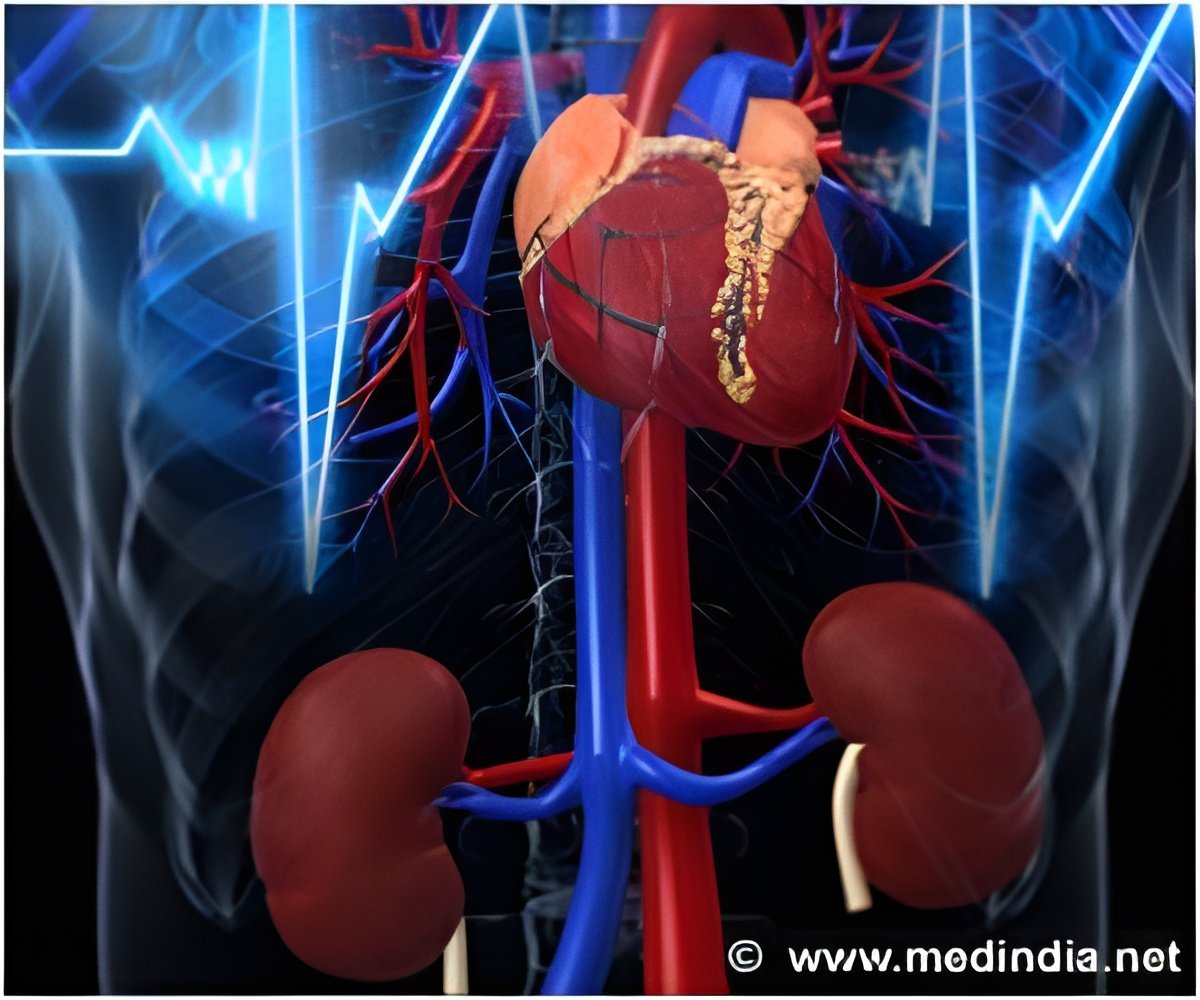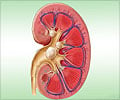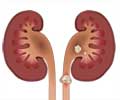Blood vessel calcification may increase the risk of heart disease in people who develop recurrent kidney stones.
Blood vessel calcification may increase the risk of heart disease in people who develop recurrent kidney stones, according to a study published in the 'Clinical Journal of the American Society of Nephrology' (CJASN). The findings suggest that monitoring such calcification may help protect the heart health of stone formers.
Approximately 10% of men and 7% of women develop kidney stones. Over the last ten years, large epidemiological studies have shown that kidney stone formers have an increased likelihood of developing other conditions such as hypertension, chronic kidney disease and heart disease; however, the mechanisms involved are unknown. Researchers wondered whether the heart problems experienced by kidney stone formers might be due to abnormal deposits of calcium in their blood vessels. They used computed tomography (CT) scans to evaluate the severity of abnormal calcium deposition in one of the largest blood vessels in human body, the abdominal aorta. 111 participants, of whom 57 were recurrent kidney stone formers and 54 were healthy controls were part of the study.
Researchers found that people with kidney stones had more calcification in the abdominal aorta, which could explain their increased risk for heart disease. They also found that stone formers had less dense bones compared with individuals who did not develop kidney stones.
Dr. Linda Shavit said, "Our findings raise several important questions that may be relevant to the care of patients with kidney stones. Existing CT can be a useful tool for assessment of aortic calcification and osteoporosis, along with kidney stone number and distribution. Moreover, preliminary experimental and clinical evidence suggests that therapeutic strategies aimed to treat osteoporosis may have a favorable effect on vascular calcification."
Researchers have cited the need for further research to confirm that heart disease can be reduced by measures aimed at identifying and reducing vascular calcification and osteoporosis in patients with kidney stones.
Source-Medindia

 MEDINDIA
MEDINDIA




 Email
Email










